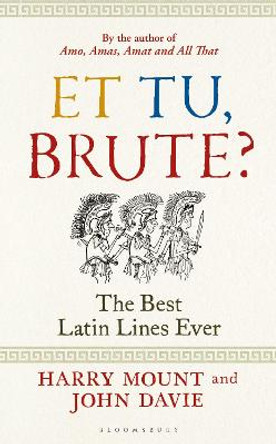Description
Why did Caesar have to die--and why did his death solve nothing? The plot was confused, the execution bungled, and within hours different versions of the event were circulating. It was the end of republican Rome and the beginning of the Roman Empire--and yet everything about it remains somewhat mysterious.
Beginning with this legendary political assassination, immortalized in art and literature through the ages, Greg Woolf delivers a remarkable meditation on Caesar's murder as it echoes down the corridors of history, affecting notions and acts of political violence to our day.
Assassins Brutus and Cassius dined with their fiercest enemies within days of the murder--and were then hunted down and killed. After the murder neither conspirators nor Caesar's partisans knew how to react. From these beginnings this book follows the normalization of assassination at Rome, cataloguing the murder of Caesar after Caesar and recording the means, methods, and motives of the perpetrators. How was the Roman Empire so untouched by these events? And how had the Republic contained such violence between friends for so long? Woolf shows how Caesar's death--and the puzzled reactions to it--points back to older ethics of tyrannicide.
When is it justified to kill a head of state? Does extra-judicial execution provide answers worth the cost of the ensuing chaos? Ranging among texts by Cicero, Suetonius, and Seneca, plays by Shakespeare and Corneille, and the ideas of Michel Foucault and Francis Fukuyama, Woolf pursues these questions through the ages. His book tells us not only how, but why, Caesar's Vast Ghost still holds us spellbound.
About the Author
Greg Woolf is Professor of Ancient History, University of St. Andrews, Scotland.
Reviews
[A] learned and lively account. -- James Buchan * The Guardian *
Stimulating. -- Peter Jones * Sunday Telegraph *
Greg Woolf's short tome explores the phenomenon of assassination in the context of Rome and the reasons why the death of one ambitious military commander should have had such a timeless impact on popular culture. -- Ian Bruce * Glasgow Herald *
Woolf combines a historical reconstruction of the events on the Ides of March with a swift overview of political murder in the ensuing two millennia and a survey of how the assassination has been portrayed in art and literature. It is an ambitious task to undertake in fewer than 300 pages, but Woolf succeeds admirably in resurrecting the real Caesar and in interpreting the images of him that later generations have created. -- Nick Rennison * Sunday Times *
What was intended as direct action to restore democracy resulted in dictatorship. We have conflicting accounts and Woolf admits that they are not reconcilable, but applies common sense to the known facts and imaginatively puts them in historical perspective. -- Iain Finlayson * The Times *
Book Information
ISBN 9780674026841
Author Greg Woolf
Format Hardback
Page Count 224
Imprint Harvard University Press
Publisher Harvard University Press









